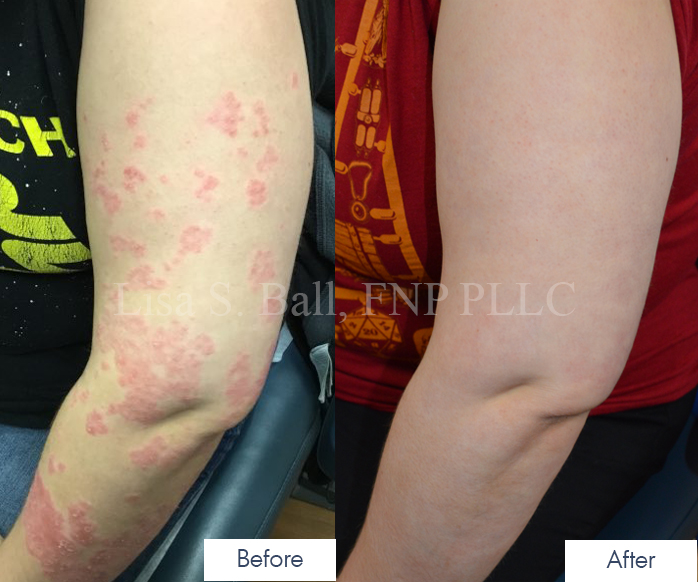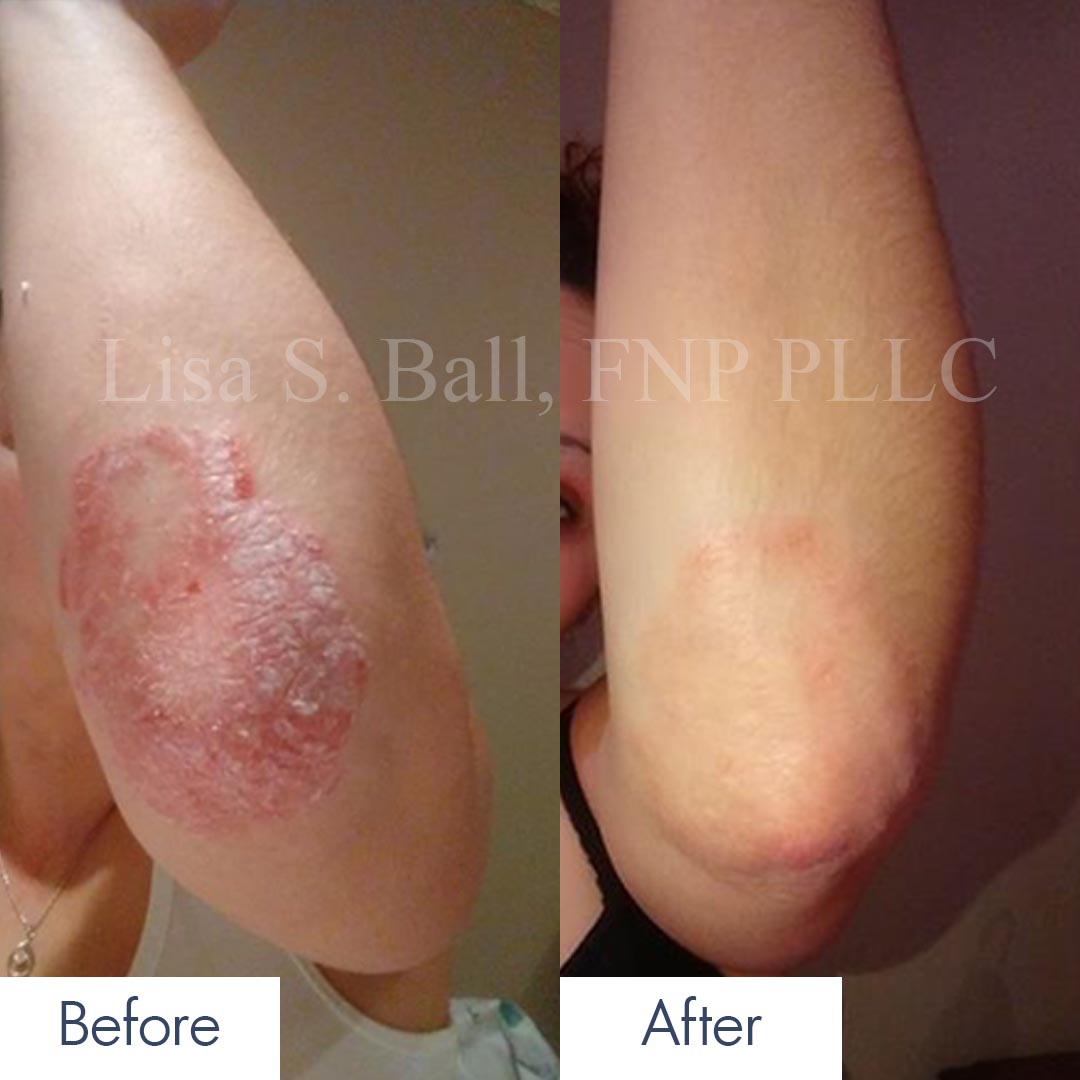Psoriasis is an autoimmune condition that causes raised, red, scaly patches (with or without silver-colored scale) to appear on the skin. Typically found on the scalp, elbows, and knees, it is usually treated with topical creams, corticosteroids, and retinoids. However, for patients who have tried these options to no avail, or have severe symptoms, biologics may be considered.
Biologics are medications that specifically target parts of the immune system that are responsible for the overgrowth of skin cells relating to psoriasis. Administered at our office by injection, they can be a very effective treatment option for patients.

Lisa S. Ball, NP psoriasis patient after biologic treatment.
The following are biologics that we use for patients with psoriasis:
• Cimzia
• Cosentyx
• Humira
• Siliq
• Skyrizi
• Taltz
• Tremfya
It is important to remember that joint pain can sometimes be related to psoriasis. This is called psoriatic arthritis. Psoriasis should be managed as it can be linked to heart disease, diabetes, cancers, as well as other autoimmune diseases. Contact our office today, to see if biologics may be right for you.
Sources: National Psoriasis Foundation, Jonathan G. Turowski, AGPCNP-BC





